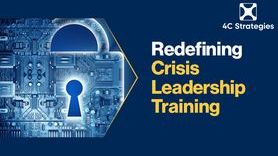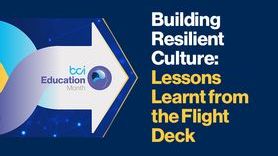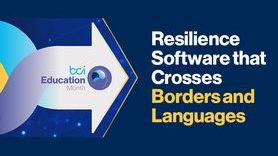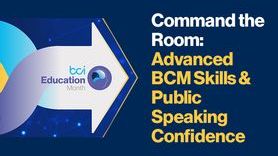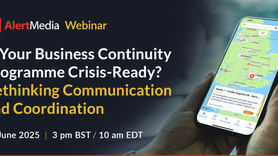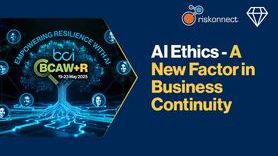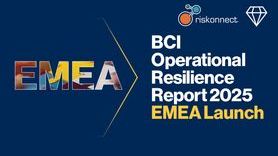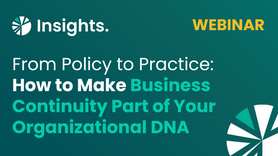New BCI Board Member: Mike Naden
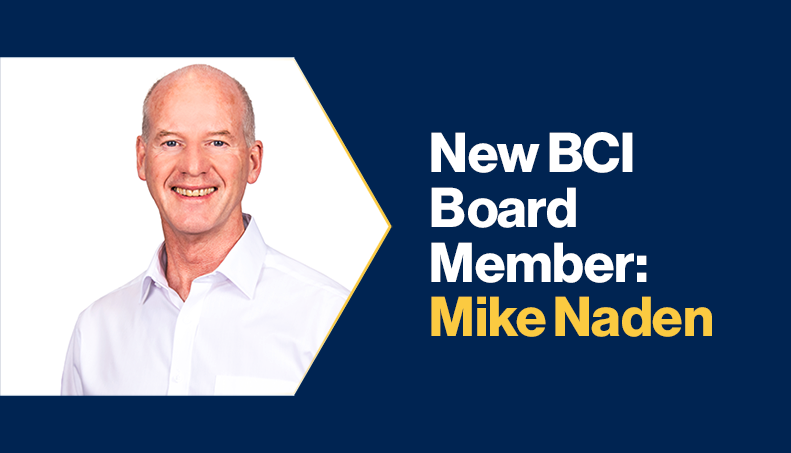
In this spotlight, the BCI are pleased to introduce Mike Naden as a new Non-Executive Director on the BCI Board. Here, we speak with Mike about his excitement to join the BCI and his experience in the field of resilience so far.
Joining the Board
I am delighted to have been given the opportunity to join the BCI Board as a Non-Executive Director and to contribute to the ongoing success of the organization. In my opinion, the importance of resilience and business continuity is now more broadly recognised by the industry in today’s rapidly changing world. It is unlikely that any of us will have experienced the impact on critical services to the extent we did through the pandemic, which resulted in many organizations implementing new ways of working. It must have been the fastest adoption of technology in history with everyone adapting to the use of video calls for meetings. I believe that one of the biggest risks, as we move forward, will be complacency as memories fade, budgets are tightened, and other pressing priorities push onto the agenda. Never has it been so important to emphasise the ongoing need for organizations to invest in resilience and business continuity to ensure that they are in the best possible place for the future.
What has been your journey in the resilience sector so far?
My core background and experience have been built in technology, initially through engineering and then through various senior management appointments leading to responsibilities to plan, manage, and operate some of the UK national infrastructure for FTSE 100 companies. Around 10 years ago, I established my own company and spent several years delivering major business transformation programmes. Alongside this, I started my non-executive career with a variety of appointments within charities, not-for-profit organizations, and two senior appointments within UK defence. I have spent the last six years chairing a local authority trading company for adults with learning difficulties. I really value the variety in my work.
In the IT world, I established slightly different terminology defining resilience as ‘availability management’ and measured this as a service to my customers. My experience in business continuity has been built working with organizations to dovetail ICT recovery plans into the overall company business continuity plan. Looking back, some of the organizations really understood the need for resilience, business continuity, crisis management, and formalising the processes for risk mitigation through comprehensive plans and strategies. I have also experienced frustrations with large organizations that only ‘ticked the box’ as they didn’t see the value of investing in resilience planning.
What has been some of your greatest challenges and successes throughout your career?
There are many that come to mind. As a general theme, I have enjoyed moving between industries, from engineering to financial services, retail, utilities, cooperatives, banking, and defence. I enjoy the challenge of new learning and how I can apply my experience to these different organizations. I think one of my biggest career challenges was a five-year period in which I managed a large outsourcing provider that was not delivering the expected service levels to a group of companies, and was also considered to be a very expensive contract. Over the period, following some improvement and cost reduction, the whole outsourcing contract was terminated and replaced by a joint venture between the supplier and the customer; and I was appointed managing director to manage the organization. We managed to achieve our three-year targets within 12 months and, as a result, the customer decided to terminate the joint venture. I then spent 12 months managing the insourcing of all people, processes, and technology, as well as the associated contracts and costs. In all, a couple of years managing the outsourcing contract, a year planning and terminating, a year creating a JV, a year running it, and a year killing it off as part of the insource, which proved to be a good decision for the customer, but not so good for the supplier.
Another major challenge and success was managing the separation of a bank from a cooperative group, I faced financial challenges, people challenges and political challenges, but delivered ahead of time by changing the direction of the programme and solution to something much simpler: as, often, a simple solution is the best solution.
What strengths and experience will you bring to the BCI Board?
We are very fortunate to have so much great expertise available to the BCI and to have a strong BCI Board. Having attended my first Board meeting, I hope to bring a different perspective from my experiences in my career. I am fortunate to have been involved with the complete restart of a company, overseeing the development of board governance, financial regulations, development of strategy, operational business plans, development of goals and objectives, and overseeing the management of the board.
I hope to support the chair, executive, and Board and, with my technology and business transformation background, provide advice, support, and challenge to the executive and management teams.
What excites you about the future of the BCI and the wider BC/resilience sector?
In my opinion, the strengths that the BCI can bring to the industry are beyond any other organization. There is clearly a need to develop resilience, its processes, policies, and best practice. The BCI can provide the framework to bring all this together, through training and accreditation, and to set the standards with the industry. I believe there will be many challenges ahead for the resilience/BC sector, such as technological advancements, the growing sophistication of cyber threats, and the changing, unpredictable, climate which is showing more extremes every year. I do think that the BCI and the wider sector have a major role to play in developing and improving how companies mitigate risks to their organizations by providing solid frameworks and the development of training and standards. It’s a great opportunity and I am delighted to have the opportunity to be part of it.
Tell us more about you
I am married to Jeanette and have a son, Alexander, who manages his own interim management company. I enjoy cycling, walking, and photography: in fact, anything that gets me outside. I live just north of Liverpool, which is a great city with great people and, of course, the best football in the world. I have a fascination for technology: I always want to know how things work! I also enjoy traveling, seeing new things, eating new foods, and the experiences that this brings.
Is there anything else you want to add?
I mentioned that I attended my first Board meeting and what a great team it is to work with. The Board was a real mix of passion, challenge, and clarification, and I am really looking forward to working with the Board and executive over the coming years and contributing to the organization’s ongoing success.





